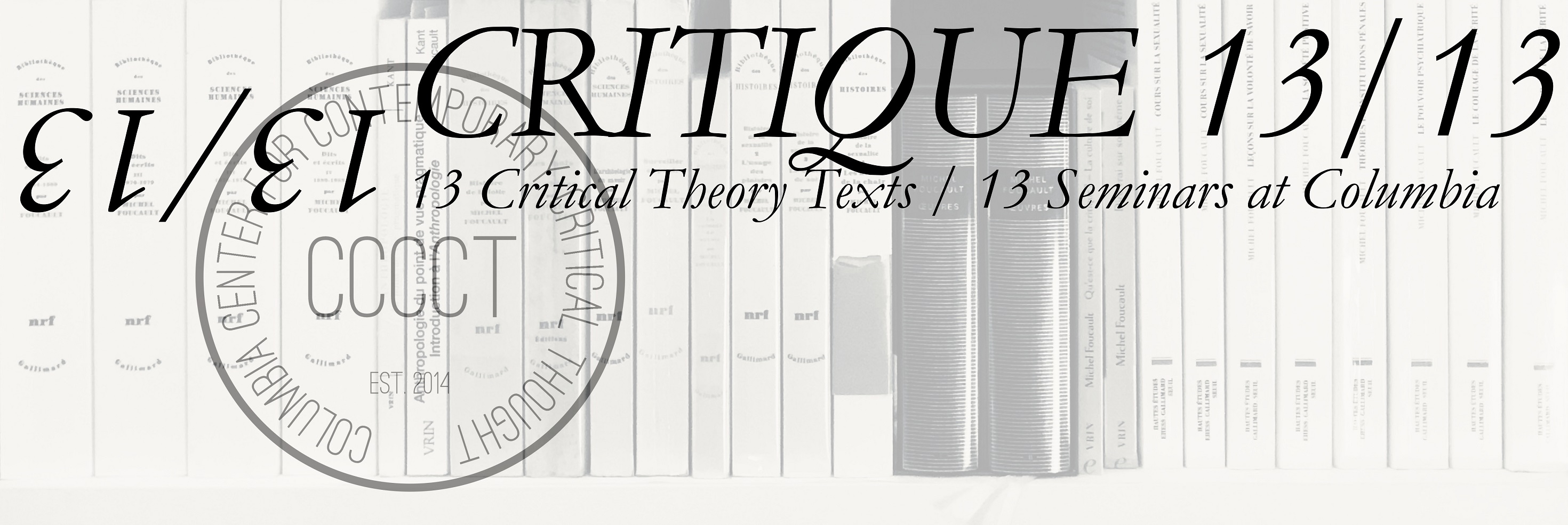By Bernard E. Harcourt
At a time when Paulo Freire’s ideas and pedagogy are under attack, especially in his native country of Brazil, it is particularly important to return to his writings, not only to discover new critical moves to deploy in our own contemporary political struggles—in effect, to engage in the kind of critical reading proposed in Critique 13/13—but also to underscore what makes Freire’s work so threatening today. It is, perhaps, a sure sign of a successful critical theory that it is vilified and held responsible for destabilizing the social order. Freire himself understood this well, and described the likely “negative reactions in a number of readers” that his work and pedagogical project would elicit.[i] Many, Freire anticipated, “will not (or will not wish to) accept my denunciation of a state of oppression which gratifies the oppressors.”[ii] For this reason, he prefaced his now-famous book in the following terms: ‘this admittedly tentative work is for radicals.”[iii]
Indeed, Freire revolutionized how we approach our task as educators—especially for those of us who come to the task as critical theorists. He was, of course, not the first to challenge the traditional models of education that viewed the student as an empty vessel to be filled with the master’s knowledge. Socrates, long before him, Rousseau during the Enlightenment, John Dewey and Francis Parker in the earlier twentieth century—many challenged the traditional models of education and highlighted the value of practice, of doing. But none framed the challenge so directly in the language of critical praxis. None so clearly placed the question of education in the framework of critical theory and of an emancipatory project guided by the ambition of a more equal and just society. Freire’s work is unique in this respect, and as a result, uniquely threatening to the status quo.
The goal of human emancipation animates Freire’s project: to empower persons who are disadvantaged to liberate themselves and, at the same time, to liberate those who take advantage of them. The method he develops is humble: to dialogue with those who are disadvantaged in order to spark their own reflections and action—in effect, to treat all others as fully equal, knowledgeable subjects. Freire places the unity of theory and praxis at the very heart of his analysis, and underscores the notion of “unity”: it is only when reflection is wedded to action that people will fully understand and overcome their condition.
Freire’s central point is that those who are disadvantaged know well the modes of exploitation that bind them. Through dialogue, exchange, and practical engagement—through reflection and action—they can come to fully understand how they are being exploited, the methods of their own domination, and they can discover the most effective means to resist and overcome their exploitation. As they become aware, they go through a process of self-transformation, such that, after first coming to comprehend the modes of exploitation that bind them, they overcome their first instinctive desire to become the ones who exploit, and finally learn to combat their exploitation. In the process, they free themselves, but also those who hold them down.
Freire’s book and his pedagogy had an extraordinary influence on education at an international level, especially in the United States. So much so, in fact, that his ideas became somewhat mainstreamed and shorn of their more radical politics. Today, fifty years after its publication, though, Freire’s Pedagogy of the Oppressed is under attack, accused of being at the root of what is now called “Cultural Marxism”—a term that, as the Yale University historian Samuel Moynshows, has a very toxic history.
How then can we deploy Freire’s text and ideas today in our contemporary political struggles? What work can we do by returning to his critical text? These are the questions we will address in Critique 4/13.
We are delighted to gather at the Pontifical Catholic University of Rio de Janeiro to discuss Paulo Freire’s work with brilliant scholars and educators Maria Inês Marcondes de Souza (Professor and Director of the Department of Education, PUC-Rio University), Cecilia Boal (Theater Director of the “Theater of the Oppressed” and Psychoanalyst), Alessandra Vannucci (Professor in the Department of Communication at the Federal University of Rio de Janeiro (UFRJ) and Theater Director), and Antonio Pele (Professor in the Law School at PUC-Rio University).
Welcome to Critique 4/13!
Notes
[i] Paulo Freire, Pedagogy of the Oppressed (New York: Continuum, 1968), 21.
[iii] Ibid. Freire added here, “I am certain that Christians and Marxists, though they may disagree with me in part or in whole, will continue reading to the end. But the reader who dogmatically assumes closed, ‘irrational’ positions will reject the dialogue I hope this book will open.” (21)
